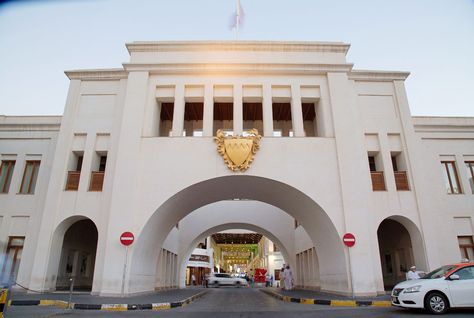The kingdom is creating a technology-led start-up ecosystem that will ensure it is ahead of the curve. Funding growth Bahrain’s $32bn infrastructure investment programme is expected to make the economy more efficient and productive.
Nearly a decade on from the financial crisis that took hold in 2007 and put an end to an era, the global economic environment remains unusually challenging. Nonetheless, the efforts that have been undertaken by Bahrain over the past 15 years to reform and diversify its economy, alongside the wider activities by regional governments to address the near-term fiscal challenges, means that the kingdom remains cautiously optimistic about the future outlook.
In the wake of the sustained oil price drop since late 2014, fiscal consolidation remains doubtless the most immediate of the challenges facing the region. The GCC countries’ fiscal shortfall in 2016 was estimated by the IMF to be $200bn. Although largely driven by lower oil revenues, it is also a symptom of structural weaknesses. From 2000 to 2014, government spending grew from around $114bn to $627.5bn; a 450 percent increase over a relatively short period.
However, across the region clear steps have been taken to address this situation, whether it be to streamline recurrent government expenditure, reform subsidies, or take steps to increase government revenues in a sustainable manner.
These efforts mean that the fiscal shortfall in the region is projected to fall to $160bn in 2017. While this is an impressive reduction, the deficit is still likely to exceed 10 percent of the regional GDP, which underscores the importance of sustaining the reform efforts in the medium term.
In terms of the growth outlook, The Institute of International Finance estimates that GCC growth slowed from around 3 percent in 2015 to around 2 percent in 2016. Going forward, economic growth is likely to remain close to current levels, albeit with a likely change in its composition in favour of the non-oil sector.
In Bahrain, more than 80 percent of GDP already comes from non-oil sectors, with overall non-oil sector growth forecasted at an average of 3.7 percent in 2016. While this may moderate somewhat in the near- to medium-term, it is likely to be close to 3 percent this year, and non-oil sector expansion will still remain the major driver of economic expansion and job creation moving forward.
The oil price performance will obviously have some impact on growth for Bahrain and even more-so for the wider region. However, governments across the GCC recognise that the oil price is unlikely to get near the $100 mark at any point soon, particularly as the major North American shale producers take advantage of technology developments to move towards a break-even price of under $40.
A major focus for governments is moving the role of the public sector from investor and operator, to regulator and facilitator.
Most of the reforms that Bahrain has carried out over the past 15 years have been focussed on creating an environment to allow the private sector to become the engine for growth, and for the public sector to be a lean, smart and focussed enabler of development and diversification.
From the Economic Development Board’s perspective, over the past couple of years we have worked hard to make sure we are focussed on our core mandate of attracting investment to Bahrain in order to create sustainable economic growth and high quality jobs.
We have narrowed down our focus to five key sectors where we think Bahrain offers particular competitive advantages and where there is strong potential for growth: financial services; information and communications technology (ICT); tourism; transportation and logistics; and manufacturing.
What links all of them is that they are areas where Bahrain has something to offer businesses. They are areas where there is a real demand and factors underpinning the growth in that demand in the coming years. And our efforts appear to be paying off — 2016 was a record year for us as we had 100 percent increase in investment attracted.
Looking to the future, Bahrain is focussed on a few key areas to make sure we build on the opportunities and maintain a positive economic trajectory. There is a strong emphasis on regulatory reform to ensure that the business environment in the kingdom is truly conducive to the formation and growth of companies. The World Bank last year recognised Bahrain as one of the top ten improvers globally in its Doing Business report.
The continued progress of Bahrain’s $32bn infrastructure investment programme will increase our regional and global connectivity, while making our economy more efficient and productive, and more competitive at a global level.
But we also need to recognise that we live in a world characterised by rapid and often disruptive change. In response, Bahrain will have to be nimble, adaptive, and forward thinking. In recognition of this, we are working on a comprehensive agenda to create a strong, technology-led start-up ecosystem that will help us prepare for the economy of the future. At the same time, it will capitalise on our key competitive advantages, including the qualified human capital available in the kingdom.
Even in the regional context, we have a window of opportunity to get ahead of the curve as our economies, regulations and education systems evolve and transform. This work will create the foundation for clusters that will drive adaptability, productivity growth, and integration in the broader regional and global economy.
Of course, what happens in Bahrain and the GCC won’t happen in isolation, but we have a clear vision of how Bahrain’s economy will continue to evolve and develop over the coming years and beyond, to maintain stable and sustainable growth.
Arabian Business
22 March






































































